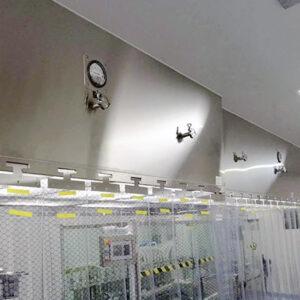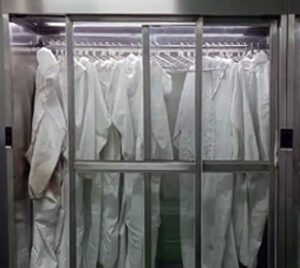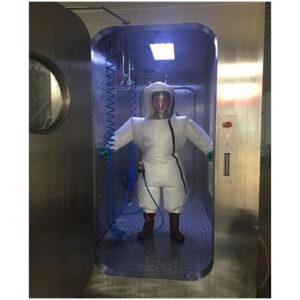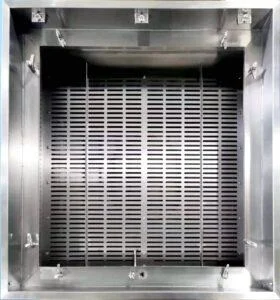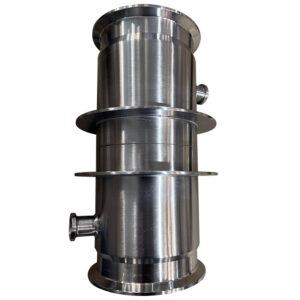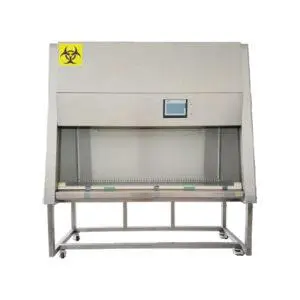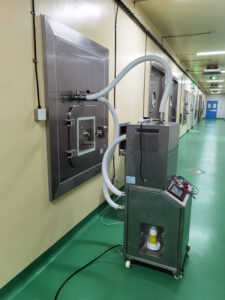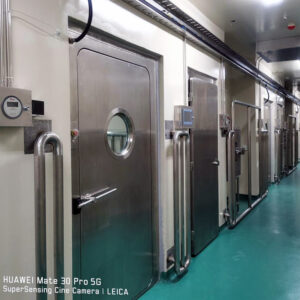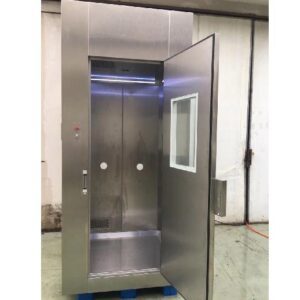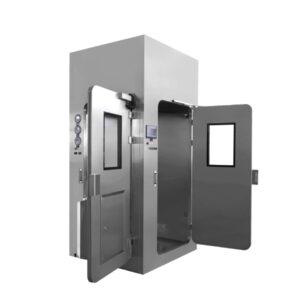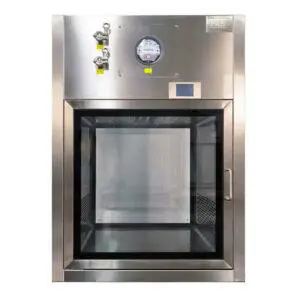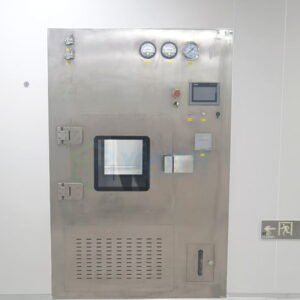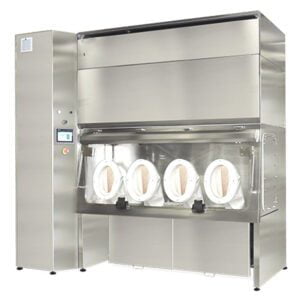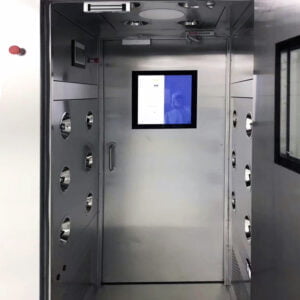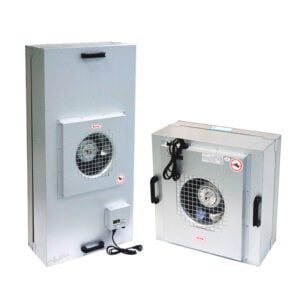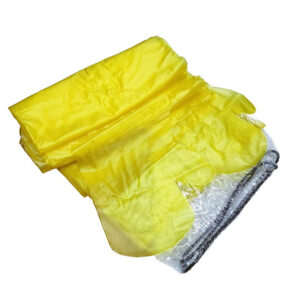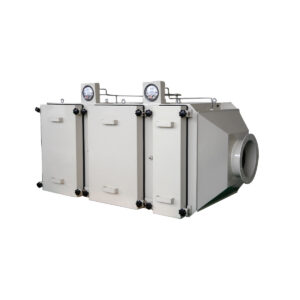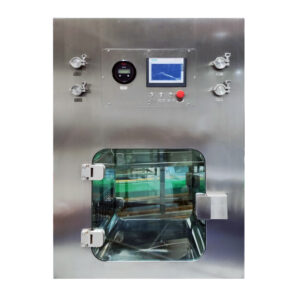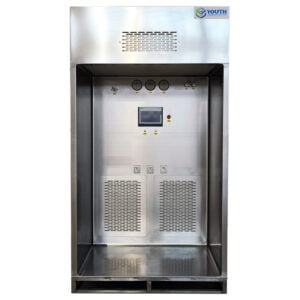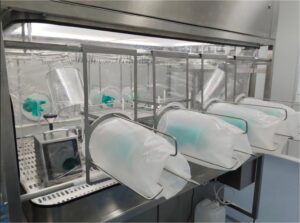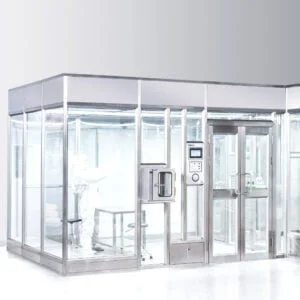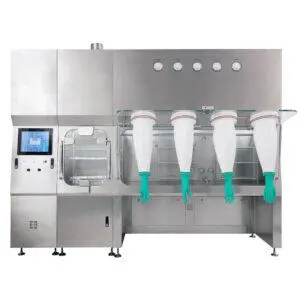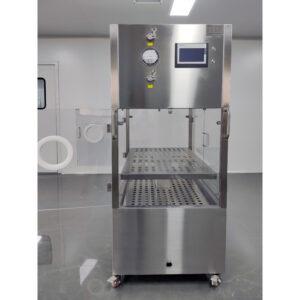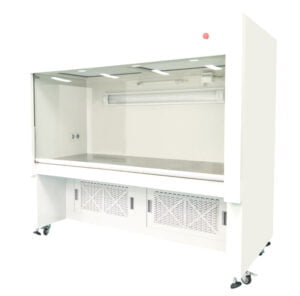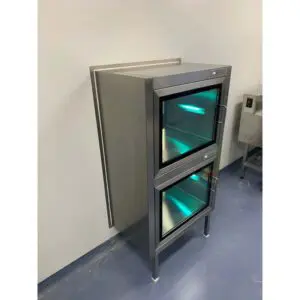A VHP (Vaporized Hydrogen Peroxide) passbox is a specialized piece of equipment used in pharmaceutical, biotechnology, and healthcare industries to facilitate the transfer of materials or objects between two controlled environments while maintaining a sterile or aseptic condition. Here’s how a VHP passbox typically works:
- Purpose:
The primary purpose of a VHP chamber is to prevent contamination when transferring materials or items between cleanrooms or controlled environments. These passboxes are commonly used in facilities where aseptic conditions are crucial, such as pharmaceutical manufacturing, research laboratories, or hospitals. - Design:
A VHP passbox is usually a small, sealed enclosure with two separate doors or access points. One side of the passbox connects to a “dirty” or less clean environment, while the other side connects to a “clean” environment, like a cleanroom. The two doors are designed to prevent direct airflow between the two environments. - Operation:
The VHP passbox operates using a process that involves the following steps: a. Material Transfer:- A user places the materials or objects to be transferred inside the passbox on the “dirty” side.
- The door on the “dirty” side is closed and sealed, isolating the materials inside.
- Vaporized hydrogen peroxide (VHP) is introduced into the passbox. VHP is a strong disinfectant and is used to decontaminate the passbox’s interior.
- The VHP is allowed to circulate within the passbox for a predetermined period, typically to ensure complete sterilization.
- After the sterilization cycle, the VHP is removed from the passbox, typically by either ventilation or aeration.
- The door on the “clean” side is then opened, allowing the user to retrieve the sterilized materials from the passbox. This door remains closed during the sterilization process to prevent contamination.
- Monitoring and Control:
VHP passboxes are equipped with sensors and control systems to monitor and control the sterilization process. This ensures that the VHP concentration and exposure time are adequate to kill microorganisms effectively. The process is typically automated to minimize human intervention and error. - Safety:
Safety features, such as interlocks and alarms, are in place to prevent accidental access to the passbox during the sterilization cycle and to alert users if there are any issues with the sterilization process.
In summary, a VHP passbox is a critical component in maintaining aseptic conditions in controlled environments. It allows for the safe transfer of materials between clean and less clean areas while ensuring that the transferred items are decontaminated through the use of vaporized hydrogen peroxide.
Related Contents:
- Ultimate Guide to VHP Passbox Cleaning in Controlled Environments
- How to choose VHP Passbox?
- User Manual Insights: Getting the Most Out of Your VHP Passbox
- The VHP Passbox Decontamination Process Explained
- The Ultimate Guide to YOUTH’s VHP Pass Box: Ensuring Sterility in Cleanroom Environments
- VHP Pass Box vs. Traditional Pass Box: A Comparative Analysis
- The Ultimate Guide to YOUTH’s VHP Pass Box: Ensuring Sterility in Cleanroom Environments
- Understanding the Mechanism of VHP Sterilization in Pass Boxes
- Cost-Benefit Analysis of Investing in a VHP Pass Box


